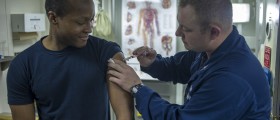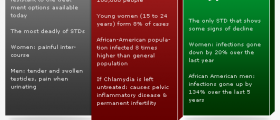
Professor Catherine Ison claims that the bacterium that causes gonorrhea is very versatile and develops resistance to antibiotics rapidly. This is the main reason that selecting the correct antibiotic will prove to be a hurdle. This leads to conclusion that if the problem won't be attended to on time, it will become very difficult to treat the infection. Both gonorrhea and Chlamydia are one of the most common bacterial Sexually Transmitted Diseases and can cause infertility in women, ectopic pregnancy and pelvic inflammatory disease. For example, gonorrhea is the second most common sexually transmitted disease in the UK after chlamydia with 16,629 cases recorded in 2008. Worldwide, there are more than 6 million cases a year.
Professor Catherine Ison reports that in Japan they have had patients who have failed therapy and a number of other countries have been affected. In the UK it has been seen an increase in reports to the National Reference Laboratory [for sexually transmitted bacteria] indicating that these bacteria are becoming less susceptible. Between the year 2003 and 2005, the standard treatment with the antibiotic Ciprofloxacin was phased out and replaced with the newer class of antibiotics that are called cephalosporins. Now doctors are running out of options, and they are being forced to use less effective drugs to which there is no resistance. These less effective treatments are prolonged, which increases the risk of onward transmission, of course if the patient is irresponsible to have sex with new partners.
Current gonorrhea treatment is consisted of a single dose of antibiotics, orally or by injection, which is normally enough to clear up the infection and prevent its being passed on. However, professor Catherine Ison reports failures of gonorrhea treatment are starting to be seen in UK. It is a reason big enough for worry. The only definitive prevention is CONDOM. IF YOU CHANGE PARTNERS, USE CONDOMS!

















Your thoughts on this
Loading...